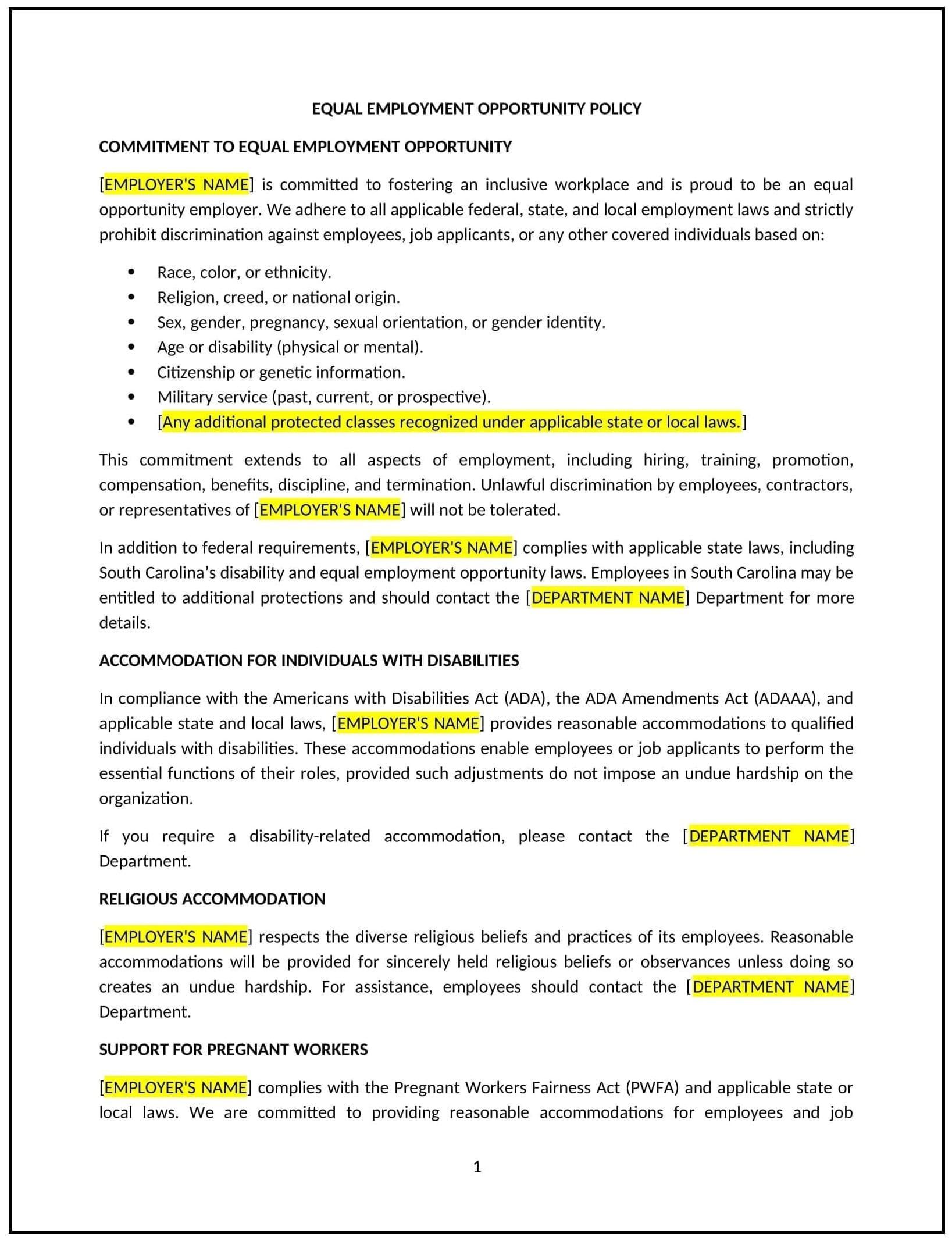Equal employment opportunity policy (South Carolina): Free template
Got contracts to review? While you're here for policies, let Cobrief make contract review effortless—start your free review now.

Customize this template for free
Equal employment opportunity policy (South Carolina)
This equal employment opportunity (EEO) policy is designed to help South Carolina businesses establish guidelines for promoting fairness and preventing discrimination in the workplace. It outlines commitments to providing equal opportunities for all employees and applicants, regardless of protected characteristics such as race, gender, religion, or disability.
By adopting this policy, businesses can foster an inclusive work environment, attract diverse talent, and align with federal and state anti-discrimination laws.
How to use this equal employment opportunity policy (South Carolina)
- Define EEO principles: Explain the importance of equal employment opportunity and the business’s commitment to fairness and inclusion.
- Prohibit discrimination: Specify that discrimination based on protected characteristics is not tolerated in any aspect of employment, including hiring, promotions, and compensation.
- Address harassment: Include a zero-tolerance stance on workplace harassment and provide examples of prohibited behavior.
- Establish reporting procedures: Outline steps for employees to report discrimination or harassment, including multiple reporting channels.
- Train employees: Educate staff on EEO principles, anti-discrimination laws, and their responsibilities for maintaining an inclusive workplace.
- Review and update: Assess the policy annually to ensure it aligns with evolving legal standards and business needs.
Benefits of using this equal employment opportunity policy (South Carolina)
This policy offers several advantages for South Carolina businesses:
- Promotes fairness: Ensures all employees and applicants are treated equally, regardless of protected characteristics.
- Attracts diverse talent: Demonstrates a commitment to inclusion, appealing to a wide range of candidates.
- Aligns with legal standards: Helps businesses comply with federal and state anti-discrimination laws, such as Title VII and the ADA.
- Builds employee trust: Shows employees that the business values diversity and is committed to creating a respectful work environment.
- Reduces legal risks: Minimizes the potential for discrimination claims or lawsuits.
Tips for using this equal employment opportunity policy (South Carolina)
- Communicate the policy: Share the policy with employees and include it in the employee handbook.
- Provide training: Educate staff on EEO principles, anti-discrimination laws, and their responsibilities for maintaining an inclusive workplace.
- Monitor adherence: Regularly review hiring, promotion, and compensation practices to ensure compliance with the policy.
- Address issues promptly: Take corrective action if discrimination or harassment is reported.
- Update regularly: Assess the policy annually to ensure it aligns with evolving legal standards and business needs.